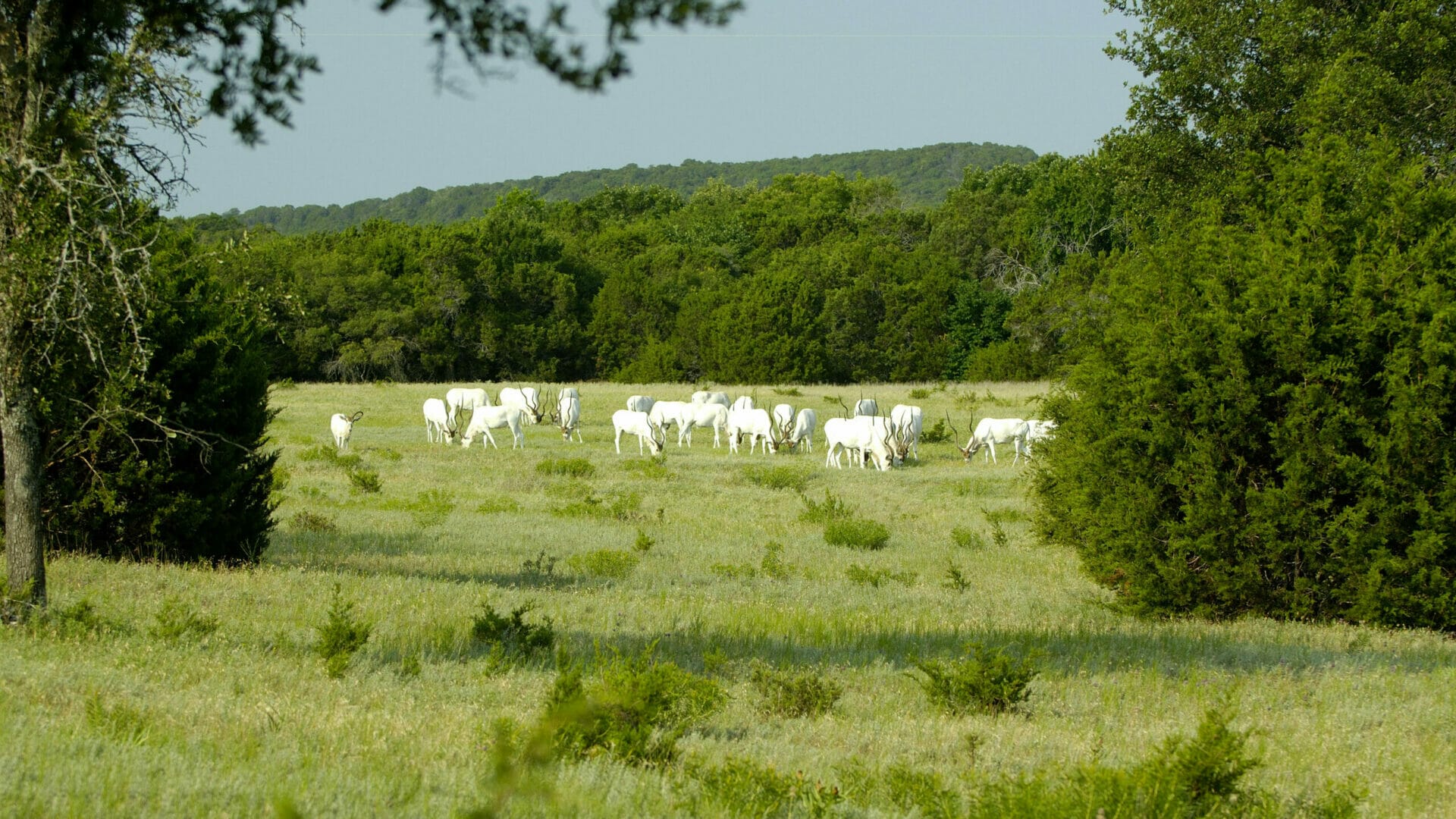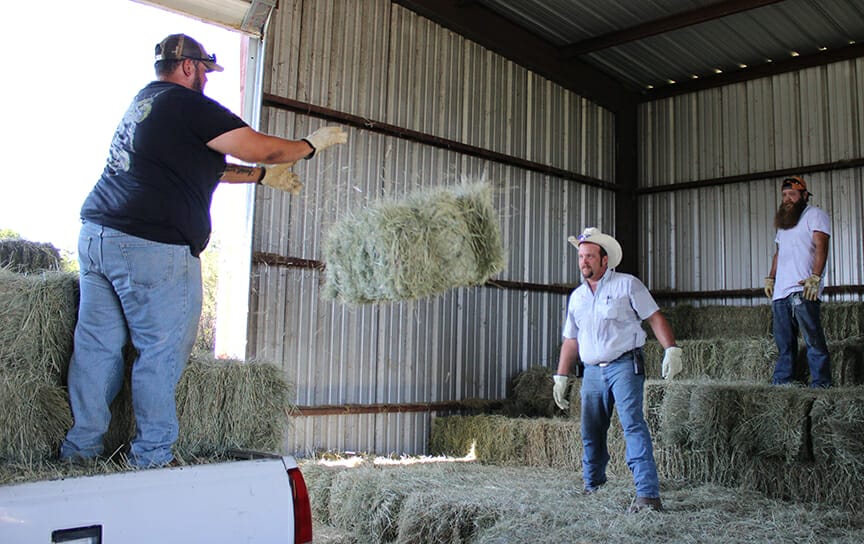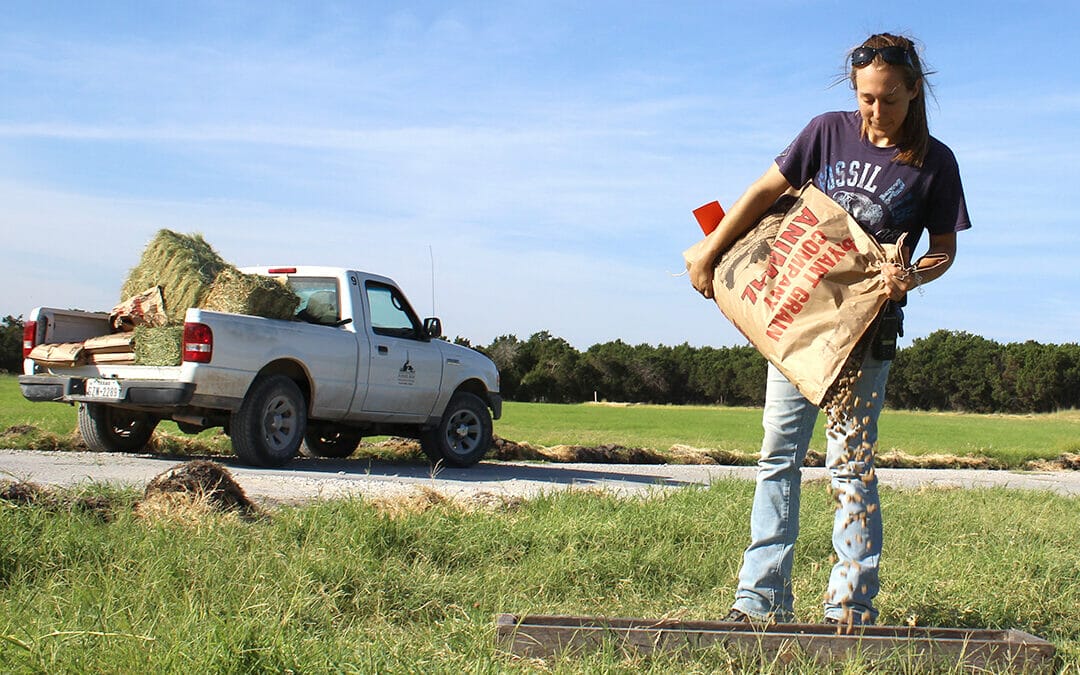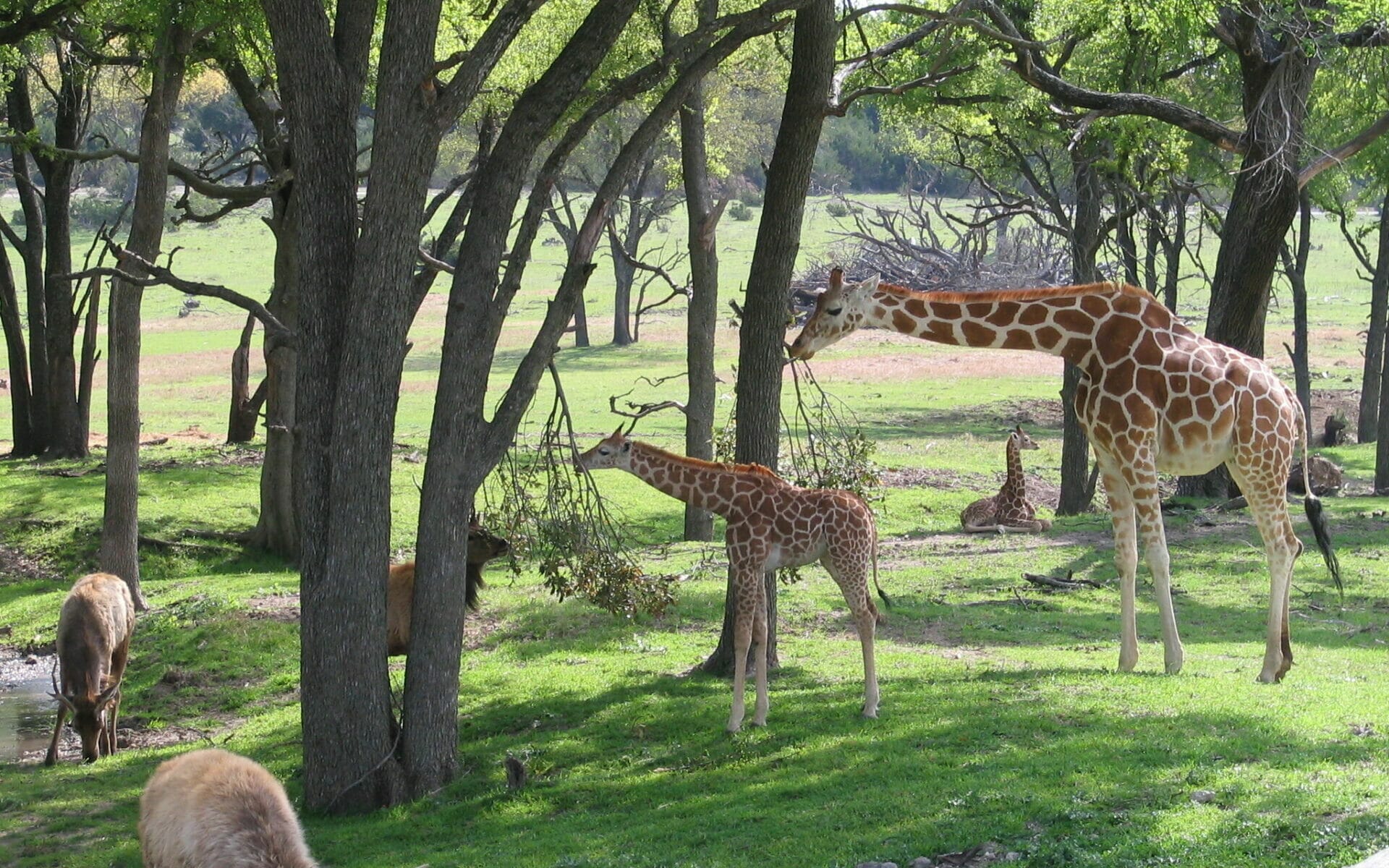Fossil Rim is known for the up-close and personal animal encounters we offer guests. Not only do you get a unique view of these species, but you get to feed them too! While this may seem like a pretty straight-forward process, a lot of thought goes into our species’ diet. The perfect meal requires careful planning and science . When it’s all said and done, this meal is crucial to the health and safety of our animals, as well as our overall mission of conservation.

Food at Your Fingertips
Have you ever wondered why Fossil Rim allows guests to feed animals while other zoological facilities don’t? The simple answer is that our facility is big— 1800 acres to be exact—and food attracts animals towards guests. That being said, we receive hundreds of guests everyday, which amounts to a lot of food!
All of the animals we allow guests to feed are herbivores. This means that in addition to the food pellets guests give them, many are constantly grazing. Some animals even receive supplemental hay or alfalfa based on their dietary needs. Because of this, we’ve had to carefully consider the ingredients in our specially made pellets. We also limit the amount guests are allowed to hand out. If we gave everyone their own cone, rather than limiting it to one per vehicle, our species’ health would suffer.


In 2022 alone, between the months of January and March, our animals consumed over 300 bales of alfalfa and almost 2,500 bags of various pellet feeds. This is all in addition to the grass and browse that occurs naturally within the park!
Who Gets What
At Fossil Rim, the majority of our herbivores fall into a category known as ruminants, or species with four-chambered stomachs. These stomachs have a very specific PH balance required to digest their food. Ruminants are then further separated into three subcategories that all have individual dietary needs: grazers, browsers and intermediates.
Grazing species, like wildebeest, eat mostly grass. However, the grass at Fossil Rim doesn’t contain all the necessary nutrients, so we supplement their diets with pellets and hay.

Browsing species, which include animals like giraffes and some gazelle, are pickier. They eat shrubs, leaves and grasses but often have specific preferences. For this reason, we provide them with browse taken from various areas around the park, guest-provided pellets, alfalfa and a second, specially formulated pellet.
Intermediate species can receive a combination of these foods based on their needs. When it’s all broken down, it’s clear that our animals preferences. It’s our job to ensure they’re getting everything they need. For instance, animals receive different amounts of food based on different needs. These could be seasonal changes, when mothers are nursing calves, if they’re recovering from an illness, and more. If we gave them too much of one food, we would not be able to ensure they were receiving well-rounded nutrition.
All About Balance
If it’s so complicated to regulate these animals’ diets, why allow guests to feed them at all? For us the answer is simple: we want guests to have a once-in-a lifetime experience that leaves them forever changed. Not only are they interacting with animals from across the world, they’re directly contributing to their health by providing them a piece of their daily diet.

When you get to hand feed a giraffe, you get to see the results of decades of conservation work right in front of you. Interacting with an animal breeds empathy for their species, which in turn fuels the desire to help save them from extinction. While there can be occasional problems when you allow people unfamiliar with exotic animals to interact closely with them, we truly believe that connecting to the hearts of our guests (through the stomachs of our animals) is crucial to inspiring conservation action.

